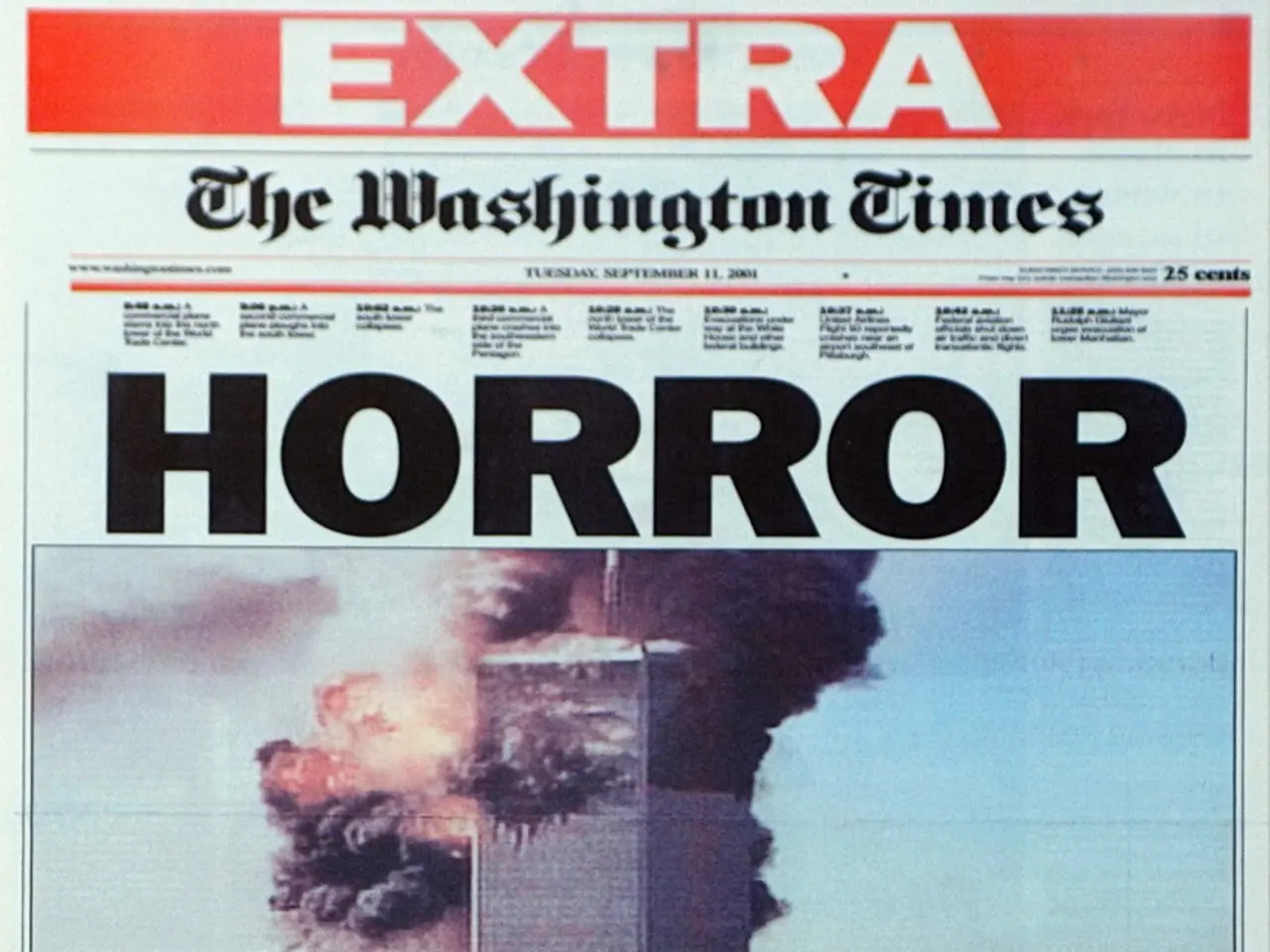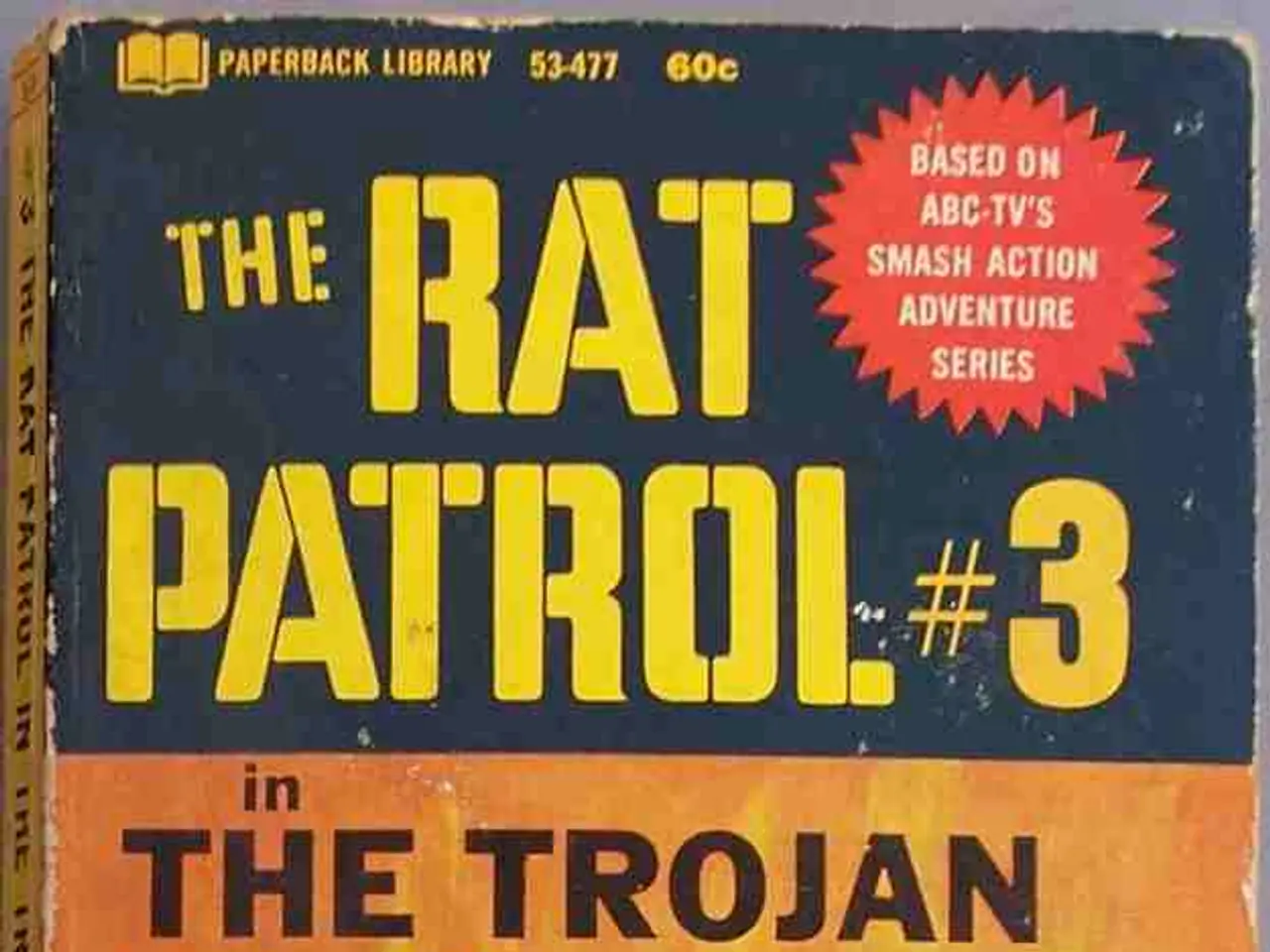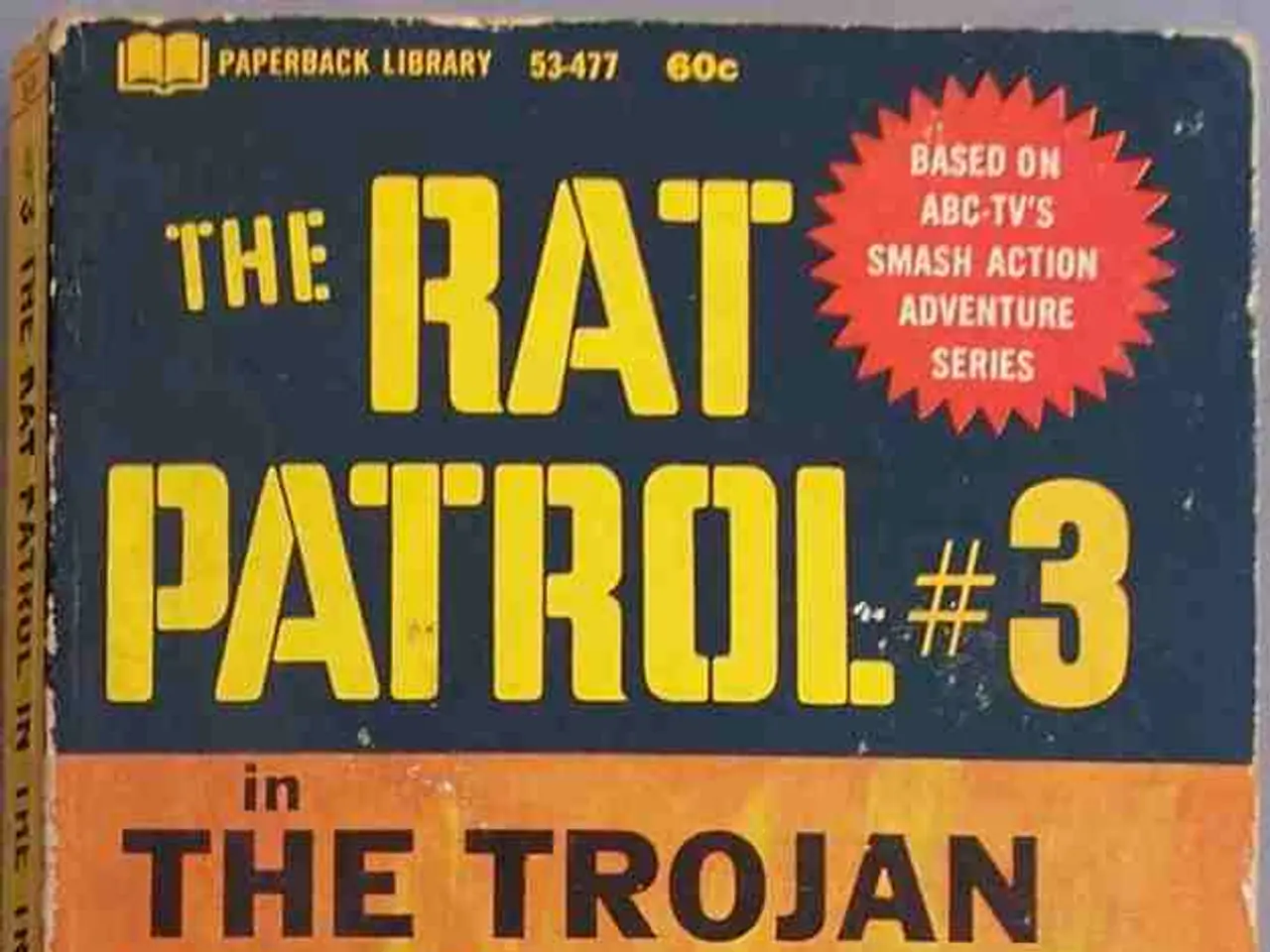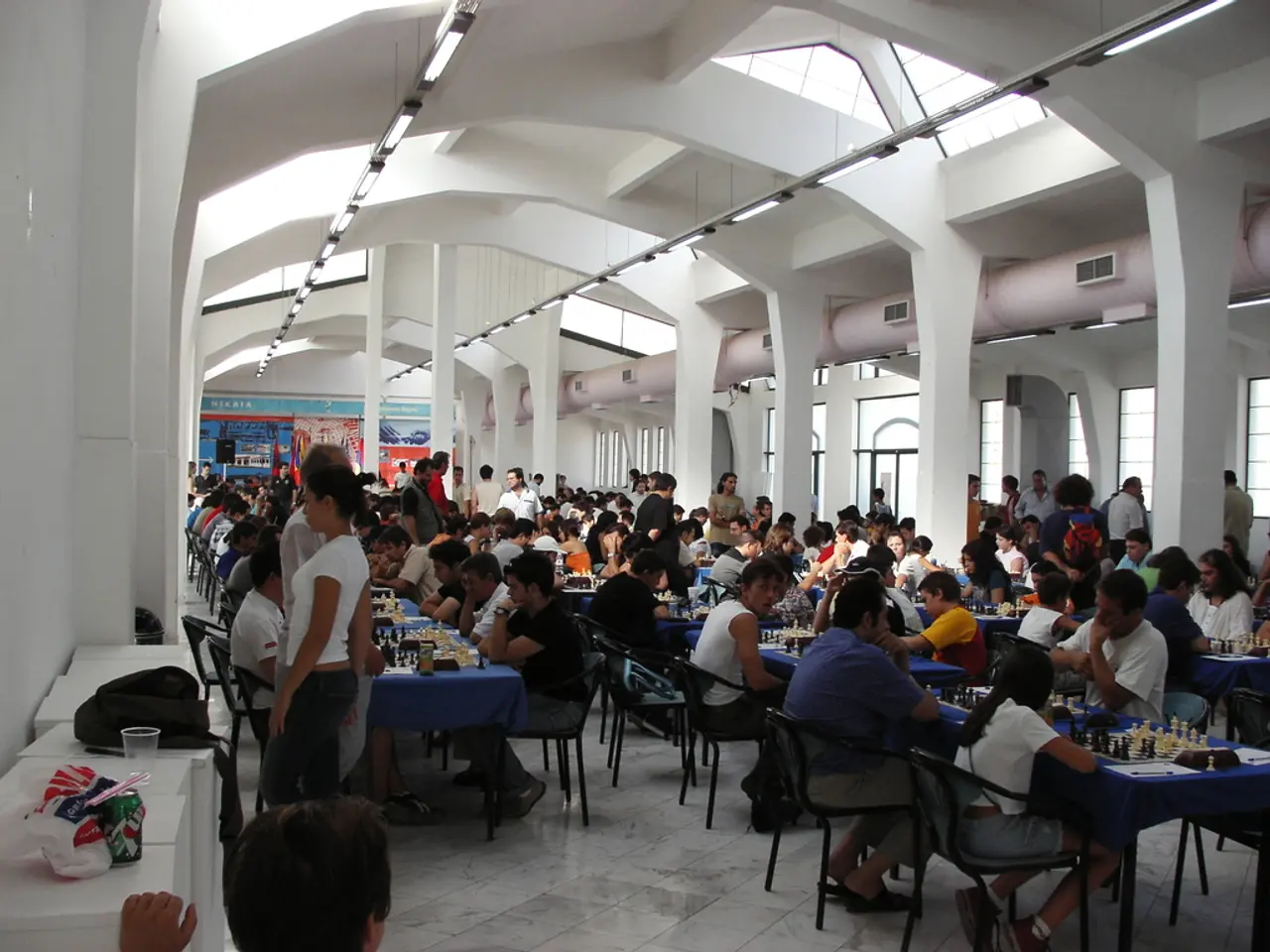Opinion Piece: The Compact Verdict - Torpedo for Right-Wing Extremism or Win for Hate Sheets?
- by Martin Debes
Reinforcement of Ban Procedure Bolsters Far-Right Extremist Groups - Reinforced Procedure for Bans Bolsters Far-Right Extremist Groups After Court Decision
Germany upholds free speech. So, let's call "Compact" what it is - a repugnant hate document. It's full of anti-foreigner, anti-Semitic, and anti-minority rants, political and media attacks, and of course, jabs at other media outlets.
But, shockingly, it's still operational. A year ago, the then SPD Federal Minister of the Interior, Nancy Faeser, declared a ban. However, that ban was scrapped by the Federal Administrative Court this week.
The court's decision is both legally sound and refreshing news for press and free speech in this nation. It serves as a cautionary tale for those eagerly pushing for a ban on the AfD.
Regarding the verdict: The court recognized that the state can apply association law to media companies, but a ban doesn't equate to "pre-censorship." This could be a victory for the Federal Ministry of the Interior.
However, the German highest court also determined that a ban may not undermine the freedom of speech and press safeguarded in the Constitution. Even "enemies of freedom" are entitled to such liberties, ensuring the judges handed down a balanced ruling.
The judges concluded that a ban is proportionate "only if the unconstitutional activities of the association are dominant." But in the case of "Compact," this dominance couldn't be proven. Racist statements, conspiracy theories, or revisional views are protected under the Constitution.
But here's the irony: The decision, provoked by a right-wing extremist media company, strengthens the case for the importance of press freedom. One needs only look at Hungary to see how an authoritarian, illiberal government restricts press freedom. And Hungary, oddly, is the AfD's declared model - a connection that is more than mere superficiality between the AfD and "Compact."
Elsaesser's Ecstatic 'Saviior' Stance
The AfD. "Compact" editor-in-chief Jürgen Elsässer was elated: "If it's impossible to ban Compact, it's also impossible to ban the AfD, which is accused of the same things as us." This statement, however, is misguided on multiple levels.
Firstly, the court decided that a medium could indeed be banned via association law, but in the case of "Compact," the evidence of unconstitutionality was not compelling enough. Secondly, a party ban procedure is a distinct and more extensive legal process.
But, truth be told, this Compact procedure indirectly fuels the current AfD ban debate. The Federal Ministry of the Interior targeted the magazine as a right-wing extremist organization. The ban was justified by an array of radical and offensive statements, as well as the magazine's promotion of an ethnocentric understanding of the people, i.e., separation between native Germans and alleged "passport Germans."
Clearly, these parallels between the Compact ban process and a potential ban against the AfD are glaring. They shouldn't be ignored - just as the attention the state generates for Compact's sales success must not be overlooked. Elsässer's newfound reach to incite against minorities and the state is a grim demonstration of the failed ban's unintended consequences: instead of damaging the extremists, the ban itself may have emboldened them.
- Compact
- AfD
- Ban procedure
- Hungary
- Jürgen Elsässer
- Federal Administrative Court
Additional Insights:
Impact on the AfD Party:
- The initial ban of Compact magazine in June 2024 by the Interior Minister Nancy Faeser was interpreted as a significant blow to right-wing extremism, given the magazine's known links with the far-right AfD party. The AfD itself had been initially labeled an extremist organization by Germany's domestic intelligence agency, making the ban part of legal actions targeting the party's influence and related media platforms[1].
- The subsequent lifting of the ban by Germany's Federal Administrative Court in June 2025 was seen as a victory for the AfD and its associated media. Critics argue that this vindicates the far-right message, while the AfD views it as a sign of growing resistance against censorship[1].
Impact on Freedom of Speech:
- The court's judgement reflects Germany's balancing act between defending democracy against extremism and upholding robust free speech protections, even for extremist content. Supporters of the judgement emphasize the power of open debate over censorship, while opponents argue that it emboldens extremist voices[1].
- Some argue that the ruling highlights a judicial preference for open debate over censorship, despite the magazine’s offensive content. This underscores an ongoing societal and legal challenge about when and how to restrict speech that borders on extremism[1].
- Critics suggest that lifting the ban might benefit right-wing extremist groups, while others argue that any future ban process must be "effective, targeted, and legally watertight" to counter extremism effectively[1].
In summary, the Compact ban procedure has had significant implications for both the AfD party and broader aspects of free speech in Germany. The subsequent lifting of the ban raises concerns about the effectiveness of state repression in combating extremism while upholding democratic values[1].
- The court's decision not to ban "Compact" magazine, despite its controversial and extremist content, has sparked a debate on the limits of association law and free speech in Germany, particularly in relation to right-wing extremist organizations such as the AfD.
- Despite opinions that the Federal Administrative Court's ruling may embolden extremist voices, the ongoing ban debate and the attention generated for "Compact" may ultimately contribute to increased scrutiny of such organizations, as shown by the initial ban and subsequent public dialogue.






